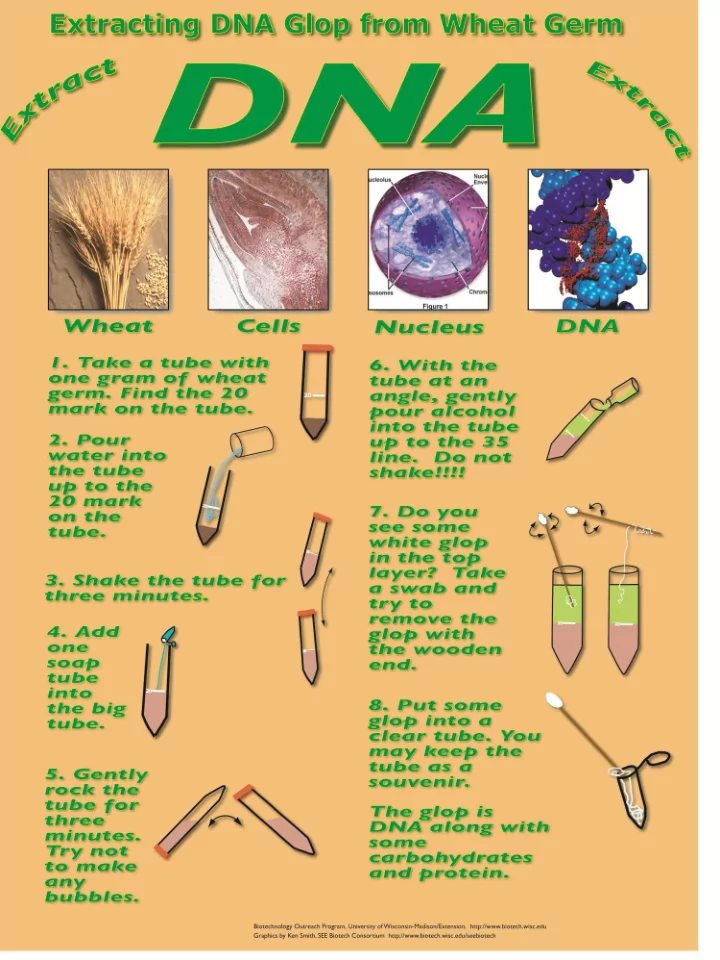

Questions to ask while conducting the Wheat Germ DNA Glop Wheat Germ “Please read the destruction sheet, and look at the four photos across the top .” What part of the wheat do we eat? Do we eat the roots, the stems, the leaves, or the flowers? Or do we eat the seed? If you slice the seed real thin and look at it under a microscope, what do you see? If you look in the cells what is the big round thing you may see? If you look in the nucleus you may see chromosomes, and what are chromosomes made up of? What does ex tract mean? Does that mean we're going to make DNA?…or does it mean we're gonna pull DNA out? When you go to the dentist and the dentist ex tracts a tooth, has the dentist made a new tooth or has the dentist merely pulled out an existing tooth? After each step, ask the people to stop, pop the top, and smell the stuff. And put your finger in the stuff to feel how it feels. Does the feeling change? The mark indicated 20 what? About how big is 1 mL? Why does the While shaking for alcohol stay 2 — 3 minutes, you separate from can go through the the water? recipe/cookie parable if you didn't start with that (next Show them page). how to use a Otherwise, talk with wooden Q – tip the learners about to gently swirl their ideas of what the fine white DNA is. threads in the blue; encourage them to "Stay Can you guess up in the what the blue, don't go green/blue goo is? down in the What is the goo" with purpose of adding their wooden it to the water and sticks. wheat germ mixture?
Key Information to include in the presentation Is DNA something you can actually see, work with, handle, and pull out from ordinary living things, including foods such as wheat germ? Pondering Points… • Given the choice between having a plate full of cookies and the recipe card for cookies, which would you take, and why? • If you have cookies, can you eat them right away? Do you avoid having to go through the work of making them? But once they're gone, can you make more? • If you have the recipe, what do you have? Ingredients? Oh? Is there a pile of flour on the recipe card? So do you have ingredients, or do you have information about the ingredients? Is it a powerful thing to be able to store, retrieve, edit, copy and share recorded information, whether it's a recipe, a DVD, or DNA? So why do we study DNA? Because DNA is like the genetic recipe card for living things: it's the stuff that carries the information. The glop is only partly DNA; it also contains protein and carbohydrates. The key thing: is DNA something so small you can't work with it? Or is something that you can collect enough to be able to see?
Recommend
More recommend